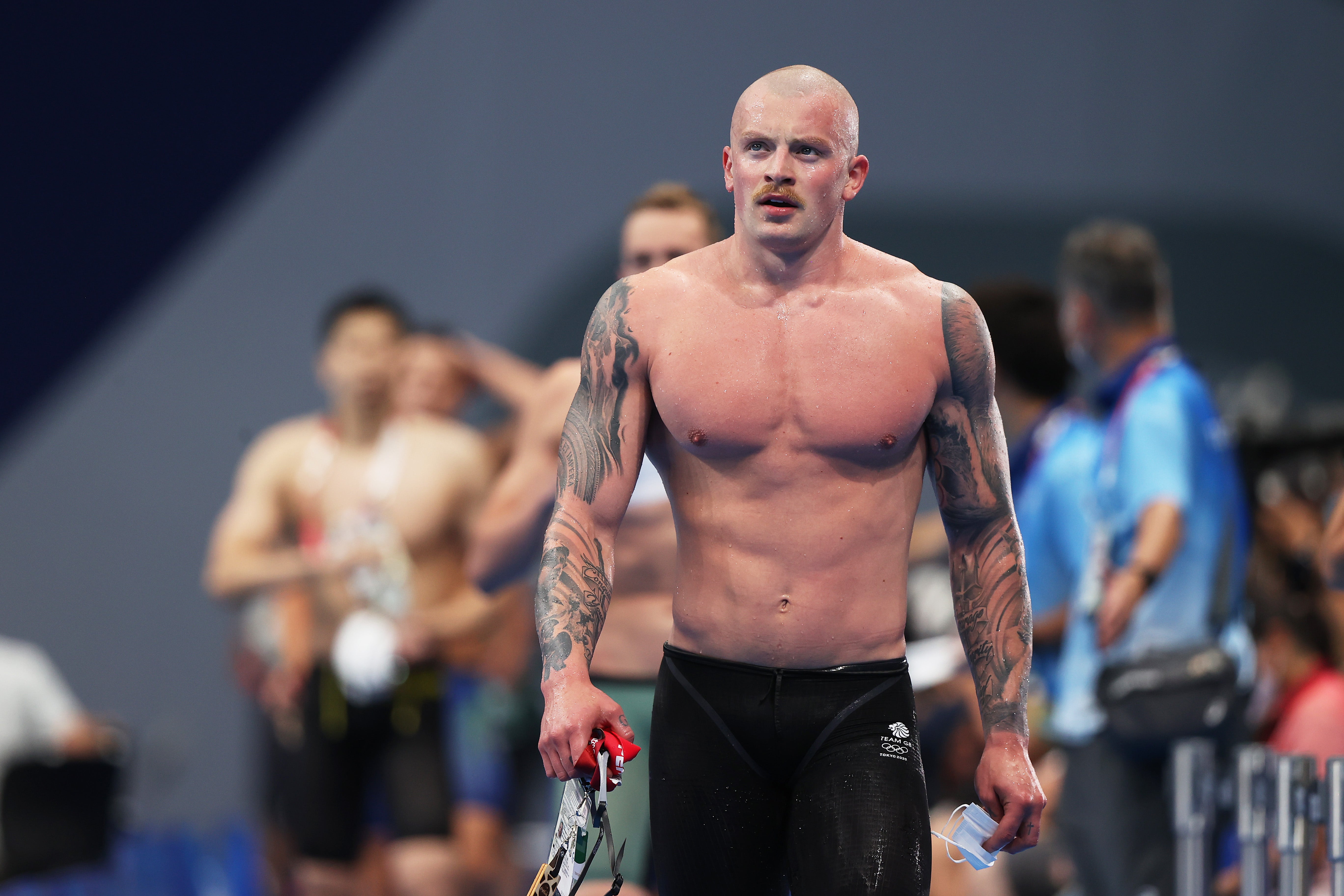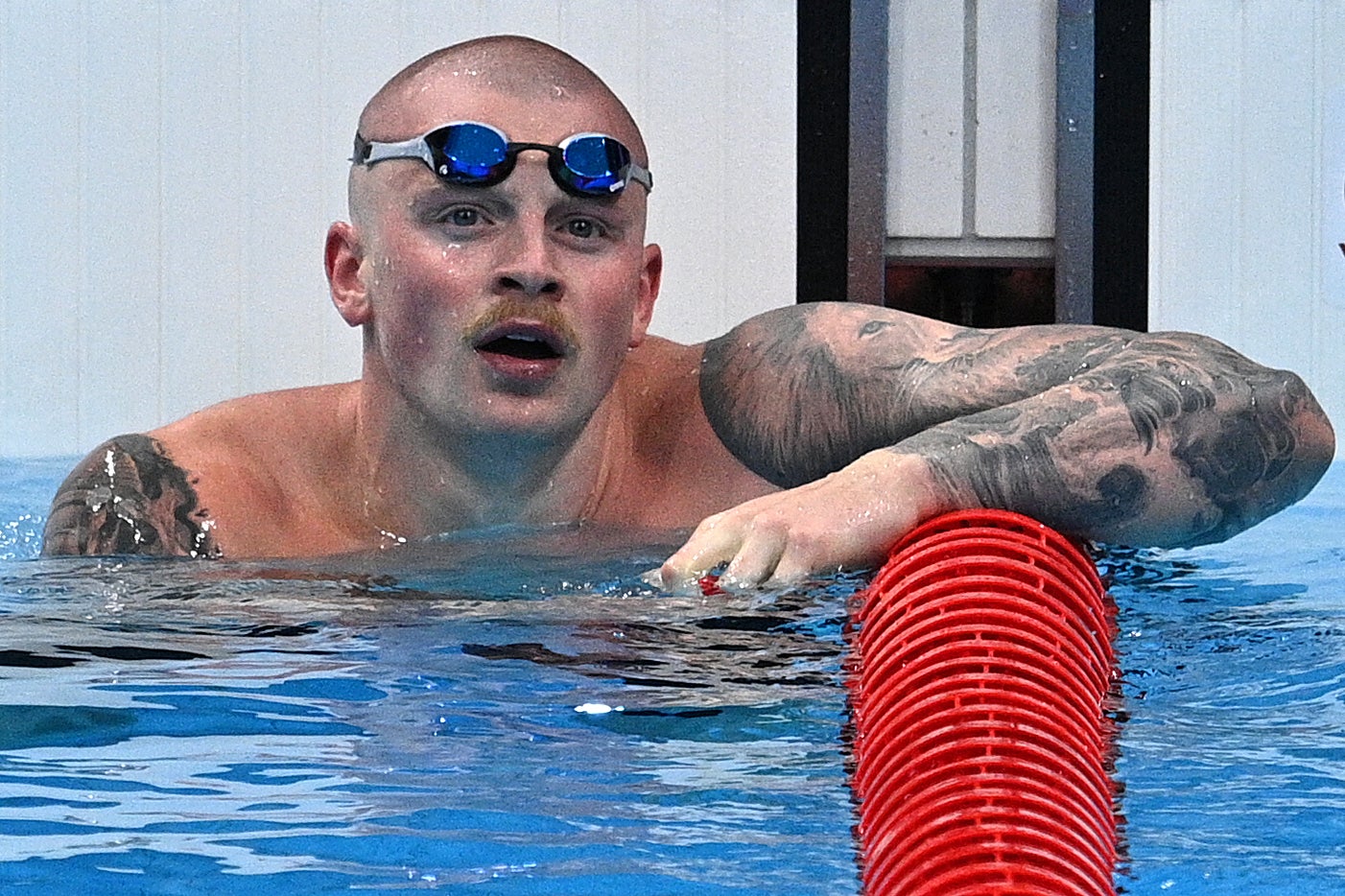Tokyo Olympics: Adam Peaty glides into 100m breaststroke semis but faces new threat in Arno Kamminga
Adam Peaty cruised through his 100m breaststroke heat, but Dutchman Arno Kamminga will be a serious rival on Monday

Your support helps us to tell the story
From reproductive rights to climate change to Big Tech, The Independent is on the ground when the story is developing. Whether it's investigating the financials of Elon Musk's pro-Trump PAC or producing our latest documentary, 'The A Word', which shines a light on the American women fighting for reproductive rights, we know how important it is to parse out the facts from the messaging.
At such a critical moment in US history, we need reporters on the ground. Your donation allows us to keep sending journalists to speak to both sides of the story.
The Independent is trusted by Americans across the entire political spectrum. And unlike many other quality news outlets, we choose not to lock Americans out of our reporting and analysis with paywalls. We believe quality journalism should be available to everyone, paid for by those who can afford it.
Your support makes all the difference.He wasn’t the first to emerge from the dive start but by the time they had reached half a length of Tokyo’s Olympic pool, Adam Peaty was in the lead. He reached the turn in 26.81secs with the gap intact, and swam away from the rest on the way home to glide into the 100m breaststroke semi-finals, recording the eighth fastest time in history in the process. The other seven are all his too, of course.
Peaty looked up at the giant board at the other end of the pool and gave a confident nod when 57.56secs appeared, as if he was telling the screen it had done a satisfactory job rather than the other way round. He hauled himself out of the pool and walked away with a little swagger, which is only natural when you can bend an entire Olympic event to your will.
It was the fastest time of the session – in several of the seven heats no one even broke a minute – but there were signs that Peaty will have to be close to his faultless best to retain his crown. Dutch swimmer Arno Kamminga produced a blistering personal best of 57.80 in the previous heat to make him the second fastest man of all time.
Then again, there was only one other competitor, the American Michael Andrew, within a second of Peaty’s time, and Peaty’s world record of 56.88 is a reminder that there is still room for more; Kamminga will need to swim out of his skin to deny him a second Olympic title.
“We will see where we are tomorrow (Sunday),” said Peaty of his semi-final. “There are a lot of variables at the Olympics that you can’t control. It was delayed. It’s hot. It’s really weird with no crowds so that’s one thing we have to psychologically adapt to. It doesn’t feel like the Olympics.”
Here in Tokyo there was certainly not quite the raucous atmosphere which greeted Peaty every time he came up for air in Rio five years ago, but one thing about Olympic swimmers is there are an awful lot of them, and they did at least offer noisy support for each other which echoed off the concertinaed ceiling to make this 15,000 seater venue feel perhaps a quarter full or more.
Chants of “USA! USA!” rained down as Andrew won heat five ahead of Britain’s James Wilby, who will take his place in the semi-finals too. Then came Kamminga’s surprisingly dominant show in heat six, drowning out the American contingent who cheered home second-place Andrew Wilson in a time of 59.03.
But the best was saved until last. The undisputed king of breaststroke arrived in understated fashion wearing all black joggers and hoody, and a red cap. He took a gulp of air, then stood on his mark and waited. What came next was second nature, the result of refining his technique over the years so that it’s almost thoughtless. Peaty looked imperious, but Kamminga did enough to suggest there will at least be a fight come Monday.

Round-up
Japan suffered an opening swimming session blow on Saturday when top gold medal hope Daiya Seto failed to make the men’s 400m medley final. The 27-year-old Seto, world champion and top ranked in the event, finished ninth in the heats. He was the bronze medallist in Rio five years ago and favourite to win gold in Sunday’s final before his shock exit.
“I miscalculated and didn’t put everything into the race like I did in Rio,” Seto said. The Japanese hope will also compete in the 200m butterfly at the Tokyo Aquatics Centre and said he would need to refocus quickly. “I will just have to put this out of my mind,” he added.
Australia’s Brendon Smith was fastest in the medley with a time of 4:09.27, followed by New Zealand’s Lewis Clareburt and American Chase Kalisz in what proved to be a highly competitive heat. Britain’s Max Litchfield pipped Seto to eighth place by three tenths of a second.
China’s Zhang Yufei tied with Australia’s Emma McKeon to go through fastest for the women’s 100m butterfly semi-finals in 55.82, followed by defending champion Sarah Sjostrom of Sweden in 56.18. “The adrenaline was pretty high being my first race and my first race of the Olympics,” McKeon said. “I felt it went pretty well.”
Germany’s Henning Bennet Muhlleitner qualified fastest in the men’s 400m freestyle in the third fastest time in the world this year, finishing in 3:43.67. He was followed by Austrian Felix Auboeck in 3:43.91, with the top-ranked Australians Elijah Winnington and Jack McLoughlin safely through to Sunday’s final, both with 3:45.20.
Emma Weyant of the United States was the top qualifier in the women’s 400m medley with 4:33.55, the fastest time in the world this year, almost two seconds ahead of next fastest Aimee Willmott of Britain. World record holder and reigning champion Katinka Hosszu of Hungary scraped through in seventh in 4:36.01, looking well below her best as she finished behind her 17-year-old compatriot Viktoria Mihalyvari-Farkas.
Australia’s crack women’s team were fastest in the 4x100m freestyle relay, finishing 1:78 seconds ahead of the Netherlands with Canada third.
Round-up by Reuters
Join our commenting forum
Join thought-provoking conversations, follow other Independent readers and see their replies
Comments